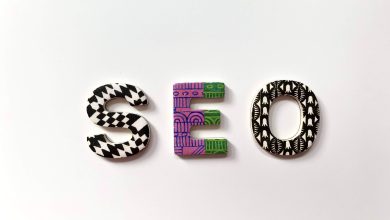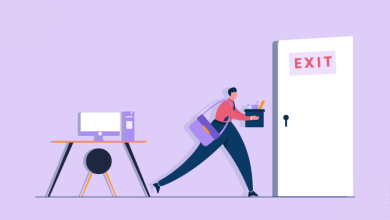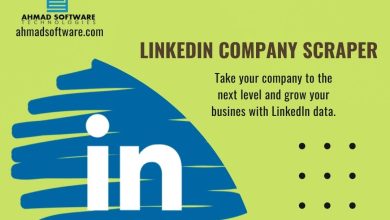8+ Tips to Help You Prepare for an Interview

You might have got the call from your dream office, where recruiters are interested in taking your interview.
Well, you might have jumped out of your bed in excitement or feel nervous as it’s your first job interview! The initial jitters are usual since a job interview is nothing like an academic interview where examiners ask you about your dissertation to help with their analysis.
So, how will you prepare yourself? Of course, your resume can speak for you! But you also need to impress your interviewer in terms of your caliber and ideas. But, mind you, you cannot lie about your potential!
In 2020, the most common reasons for lying during a job interview among Poles were that they had been unemployed for a long time (24%) and that they did not satisfy the offer’s standards (18%).
Sigh!
But, you don’t have to hide or lie about anything if you are prepared. On that note, here are a few tips to help you gear up!
- Do the Research on the Company
Employers try to understand how much you know about their company to determine how interested you are. This study is a simple approach to improving your interviewing abilities.
So, here are some pointers to remember:
- Learn everything you can about the job, the company, and the industry.
- Discover current events and trends that may affect your future workplace.
- Examine the company’s website and social media presence.
To get insider knowledge, reach out to people in the organisation via LinkedIn, peers, faculty, or relatives.
- First Impressions Matter
To make a good first impression, usher in good gestures, and greet people with a smile on your face. Make sure you come across as friendly, professional, and courteous as soon as the interviewer approaches you. Also, do these:
- Make eye contact, stand up straight, and extend your hand.
- Say ‘hello’ and introduce yourself, expressing your joy to meet them and thanking them for their time today.
- Paying close attention to these details can help you land your dream job.
- Carry Your Résumé
Just because you have access to a computer doesn’t mean you should not have a printed copy of your resume with you.
Even if you are in an online interview, keep your resume handy. Your eyes darting back and forth between various screens may give the impression that you aren’t completely focused on the interviewer.
Apart from that, situations like technical glitches can arise at any time. So, avoid such occurrences by keeping a hard copy as your backup.
- Create a Set of Questions
Most hiring managers will give you time to ask questions at the end of the interview.
Demonstrate that you’ve done your study by asking questions so you can assess whether the organization in question is a good fit for your career and personal goals.
Research the company and read the news section on their website to learn everything you can about them before the interview.
This is also a wonderful moment to discuss work-life balance, advancement prospects, and department goals.
- List out the “Selling Points” of the Job
Prepare for each interview by thinking about three to five key selling points, such as:
- Why are you the ideal applicant for the job?
- How can you make the difference that others cannot?
Prepare a demonstration of each selling elements, like:
- I am an excellent communicator. For instance, I convinced an entire group to…….
Also, be prepared to tell the interviewer why you want the position, including what intrigues you, what benefits you value, and what skills it requires. If an interviewer doesn’t believe you’re genuinely passionate about the job, they will not extend you an offer — no matter how qualified you are!
- Interviewing Based on Behaviour
Prepare to respond to behavioral questions. These are short stories about occasions when you overcame adversity, led a team, met a deadline, revived a failed project, etc.
The interviewer will concentrate on essential competencies, including planning and prioritizing as well as customer focus. Your responses should be brief, specific, and detailed.
Consider your previous work experiences and be ready to discuss specific examples and consequences.
- Use the First Five Minutes
According to a survey, interviewers make up their minds about candidates in the first five minutes of the interview. After that, they spend the rest of the time hunting for evidence to back up their choice!
So, what can you do with those five minutes until the gate closes? Make sure your entry seems energized and enthusiastic, and express gratitude for the interviewer’s time.
Also, begin with a favourable statement about the organisation, such as, “I’ve been eagerly anticipating this meeting [not “interview”]. I think [the organisation] is doing fantastic work in [a certain sector or topic], and I’m definitely looking forward to contributing.”
- Take Care of the Minor Details
An interview can take an unfavorable turn. So, make every effort to identify and eliminate possible hurdles before they arise, like:
- Close all superfluous software on your laptop.
- Switch off notifications.
- Make sure your devices are fully charged.
- Do not forget to carry your own pen and paper.
If you are in a remote interview, make sure you have all the important devices near you, like the chargers, webcam, etc.
Make sure you have extra batteries in case the interview lasts longer than expected. Also, have internet backup in case your Wi-Fi disturbs you during the interview.
- Finish on a positive note
In your daily life, have you experienced a salesperson coming to you and displaying his goods, then thanking you for your time and walking out the door? Even if you don’t purchase, a salesperson has the patience to greet you before and after their service.
The same goes for you. Greet with a positive gesture, even if you do not get selected.
However, if you think you are a good fit, ask for it! Tell the interviewer how much you like the position, how happy you are about it, and how certain you want to work there.
If there are two equally good candidates after the interview – the interviewer will believe you are more likely to accept the offer and will be more inclined to make you an offer.
- Use appropriate body language
Make eye contact, shake hands firmly, maintain decent posture, speak clearly, and avoid wearing perfume or cologne!
Small rooms with poor air circulation are sometimes used as interview sites. You want the interviewer to focus on your qualifications for the job, not on the fact that you’re wearing a branded suit. If you need an awesome tool to write quality essays then Essay Typer tool is the best tool.
Even though the outer impression matters, don’t exaggerate it. Instead, balance yourself.
- Concentrate on your closet
Lay up your outfit and accessories, including shoes, notebook, résumé or portfolio, the day before a job interview.
Choose work attire that makes you feel strong, put-together, and assured.
A decent rule of thumb is to dress slightly more formally than the office’s every day wear when interviewing.
Dress business casual if the office is informal. Choose a more formal suit if the office is business casual. If your workplace is business formal, make sure your entire attire is on point.
Final Words…
You cannot deny that it takes a huge process to deal with an interview. However, once you get prepared, you can apply for as many interviews as you want. At the bottom, it’s the confidence that makes all the difference.
Hence, try these tips and see the good news coming your way!
Author Bio – Ethan Taylor has a Ph.D. in Economics and is a professor at a renowned college in the US. He is also associated with the brand MyAssignmenthelp.com where he offers Dissertation Help to students. Taylor loves to bake and travel in her free time.




